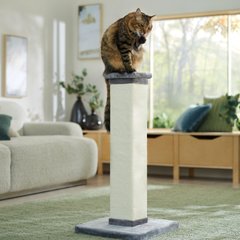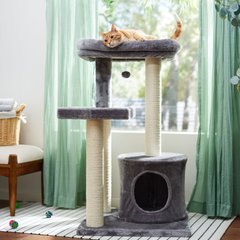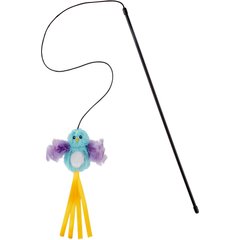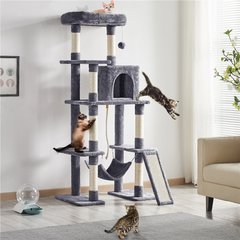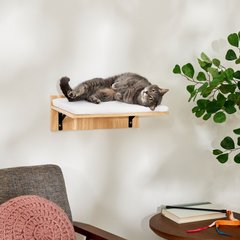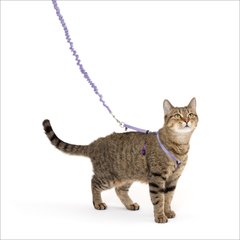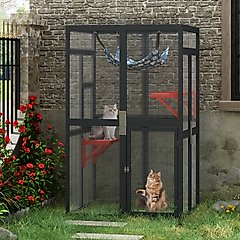Do You Have a Bored Cat?
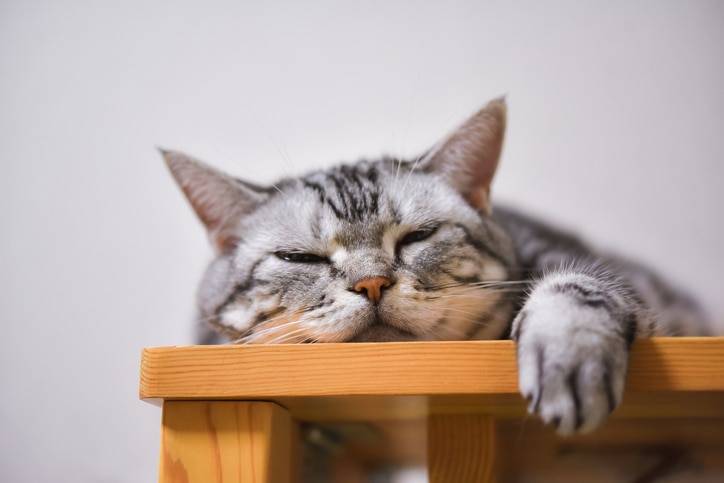
Photo by ramustagram / iStock / Getty Images Plus
A looong stretch. A dramatic yawn. Is your cat bored, or are they just being … a cat? As it turns out, those seemingly random behaviors might be telling you something important.
How to Tell If Your Cat Is Bored
So, do cats get bored? Cats don’t experience boredom quite like we do when we’re stuck in traffic or sitting through a meeting that could’ve been an email.
“What people think of as ‘boredom’ is actually frustration and stress due to a lack of environmental enrichment,” says Blake Gibson, DVM, a behavioral medicine resident at Texas Veterinary Behavior Services and VCA Lexington Boulevard Animal Hospital, both in Sugar Land, Texas.
Think your feline friend might need more excitement in their life? Here are the telltale signs.
Repetitive Behaviors
When cats lack stimulation, they may show signs of distress, says Ellen M. Lindell, VMD, DACVB, a board-certified veterinary behaviorist at Veterinary Behavior Consultations in Asheville, North Carolina.
This includes repetitive behaviors like the following:
- Abnormal meowing or vocalization
- Pacing
- Excessive grooming (sometimes leading to bald patches)
- Tail-chasing
- Inability to settle down
Destructive Behavior
If your cat turns your couch into a scratching post or knocks a vase off your shelf (again), they might be trying to create their own entertainment. Dr. Gibson confirms that “poorly enriched cats are more likely to show increased destructive behavior.”
Ensure you offer your cat plenty of environmental enrichment like cat scratchers, cat trees, cat window perches, and toys to keep your feline friend from becoming destructive.
Recommended Products
Increased Reactivity
Without healthy outlets for their natural hunting instincts, cats might turn you into their prey. Dr. Gibson says that while they’re likely just trying to play, it could take the form of the following behaviors:
Low Energy
Does your cat take napping to the next level? They may be lethargic or sleep excessively simply because they have nothing else to do—aka “limited opportunities for play or exploring,” says Dr. Lindell.
Unusual Bathroom Habits
Finding “presents” where they don’t belong? “A stressed cat is more likely to develop behaviors like house soiling,” says Dr. Gibson. Stress can also cause inflammation that leads to urinary problems.
“Stress is a contributor to medical conditions like cystitis (also known as feline lower urinary tract disease),” he says.
Weight Gain
Physically inactive cats may overeat and become overweight, which can lead to health and mobility issues. “This increases their risk for conditions like osteoarthritis and diabetes,” says Dr. Gibson.
Why Is My Cat Bored?
If your cat is acting out, zoning out, or staring at you with “entertain me” eyes, they may need more mental or physical activity—or both.
Lack of Enrichment or Exercise
Look to cats’ biological tendencies to explain their need for daily stimulation and exercise, says Dr. Lindell. “Most healthy cats are playful by nature—they are wired to hunt and explore.”
Breed and Individual Needs
While individual personality plays a role, Dr. Gibson says some breeds need more enrichment than others, including the Bengal, Savannah, and Ocicat.
Loneliness
Your cat might simply be missing quality time with their favorite person—you! “Social cats need human interaction,” says Dr. Lindell.
How Can You Cure Your Cat’s Boredom?
A bored cat doesn’t have to stay that way. Here’s how to bring more play and purpose into their daily routine.
Interactive Play
“Engaging your cat in play with toys for even two or three 10-minute sessions per day can go a long way in improving their life,” says Dr. Gibson.
Cats need both social and cognitive enrichment, notes Dr. Lindell, which she says can take many forms:
- Balls that cats can bat around rings or tracks
Recommended Products
- Training tricks and playing with wand toys
Recommended Products
- Games of fetch with plush toys or balls
Recommended Products
- Cat TV programs or iPad games designed for cats
- Cat tunnels and walkways that cats can navigate from different angles
Recommended Products
Make Your Home Cat-Friendly
Ready to dial up the fun for your feline? Anything that lets them climb, jump, run, or scratch will keep them moving and mentally stimulated. Think tall cat trees (over 5 feet tall) and cat shelves or perches, says Dr. Gibson.
Recommended Products
But before you fill your cart with enrichment items, consider your cat’s personality, says Dr. Lindell. Different cats may prefer different toys, resting spots, and treats.
While a bird-watching window is a non-negotiable for most cats, you can kick things up a notch with leash training so you can take them on daily adventures. Installing a catio will also let your cat safely enjoy the sights, sounds, and smells of the outdoors.
Recommended Products
Feeding Enrichment
Want to tap into your cat’s natural hunting instincts? Try these “hunt for dinner” ideas recommended by Dr. Gibson:
- Hide kibble around your home for your cat to “hunt”
- Fill small puppy KONG toys with wet food
Recommended Product
- Toss cat treats for your cat to chase (but not too many)
Recommended Products
- Use cat puzzle toys that require different skills, such as using their paws versus their mouth
Recommended Products
Sensory Enrichment
New scents can be a source of stimulation and enrichment for your cat. “Save your Chewy boxes and set one out periodically for the cat to investigate,” says Dr. Gibson. “These boxes pass through a lot of places and hands during shipping, which means each one is unique in odor.”
Another idea? Sprinkle cat-safe herbs on your cat’s favorite perch or resting spot. Dr. Gibson recommends dried basil or cinnamon (though they shouldn’t actually ingest any) to provide “unexpected scents.” Beats a dirty sock any day if you ask us.
When to See a Vet
Most importantly? If your cat seems off, don’t just assume it’s boredom. “Any unexplained change in behavior, such as reduced play, reduced sleep, increased vocalization, or increased hiding, warrants a medical exam,” says Dr. Lindell.
Dr. Gibson agrees: “Decreased activity, for example, is a red flag for both poorly enriched cats and those who are sick … In general, cats are very good at hiding signs of illness and discomfort, which is why a thorough evaluation by a veterinarian is so important.”
FAQs About Bored Cats
Q: Does my cat get bored being indoors all day?
A: While living indoors helps cats live longer and healthier lives, it’s not without its downsides.
“[Indoor life] has come at a significant cost to cats’ behavioral welfare,” Dr. Gibson explains. “Keeping cats as indoor pets requires the pet parent to recognize and help them adapt to this very unnatural lifestyle.”
There’s an easy solution, though—make the indoors just as exciting as the outdoors. With daily enrichment, such as toys, playtime, vertical spaces, food games, catios, and leash training, you can give your indoor cat the best of both worlds.
Q: Are cats OK with doing nothing all day?
A: Not really. While cats sleep up to 16 hours daily, even the most independent ones need activity during waking hours. “Cats need both social and cognitive enrichment,” says Dr. Lindell.
Q: Should I let my indoor cat outside?
A: No, outdoor access comes with significant risks, such as great risk of injury and parasitic infection. Consider supervised outdoor time with a harness or a secure catio instead.
Q: Is my cat hungry or bored?
A: If your cat has just eaten but continues to beg, they’re likely seeking stimulation, not food. Try engaging them with a toy or puzzle feeder instead of offering more treats.
Q: Are single cats bored?
A: Not necessarily. Some cats will enjoy the company of a feline sibling, but many solo cats thrive when given proper enrichment. “Calm, social cats are the most likely to benefit from a buddy, but there is still no guarantee,” says Dr. Lindell. Quality time with you can often be just as valuable.
Attributions
This content was medically reviewed by Hannah Hart, DVM, Chewy veterinarian.
